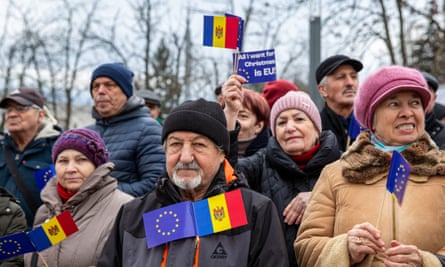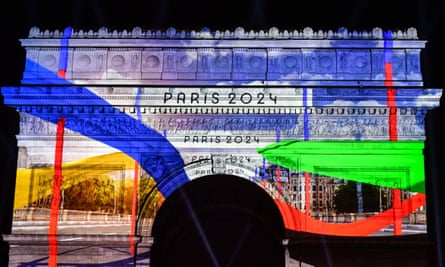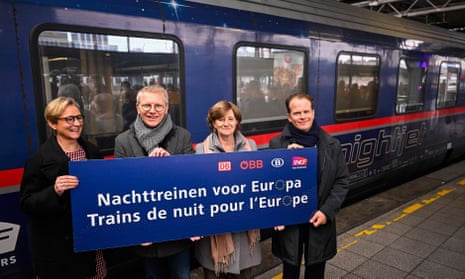José Manuel Barroso, the former prime minister of Portugal and former head of the European Commission, used to say that Europeans were in love with “the intellectual glamour of pessimism”. When I first heard him say that in 2005, I had just started as a correspondent in Brussels after a few years living in the US, and his words rang especially true. There was a stark contrast between the deeply rooted American cultural belief that things could only get better, and the routinely bleak view that prevailed in many European countries, even the wealthiest and most privileged ones. France, Belgium, Spain and Italy consistently rank high in global surveys of pessimism.
Americans have become more pessimistic since then too, especially over partisan divisions. But in Europe negative, defeatist thinking is often thought to be more intellectually credible, regardless of actual events.
Take 2019, which can now, with hindsight, be viewed as a relatively positive year for Europeans: post-financial crisis, pre-pandemic, pre-Ukraine war. In that year, a YouGov global survey showed Europeans were the gloomiest in the developed world.
There are certainly reasons to have been pessimistic in 2023. So far this decade has been full of tragedy, uncertainty, persistent poverty and rising authoritarianism, even in established democracies. Ukraine continues to be assaulted by death and destruction while military and economic support is waning and Vladimir Putin’s aggression seems unrelenting.
The lack of effective European leverage in the Middle East has been painfully evident as the war in Gaza has caused an unprecedented, horrific level of civilian casualties. Antisemitism and Islamophobia have reemerged in Europe, reminders of a dark and not-so-distant past.
Thousands of people have died trying to reach European shores. Educational performance across the continent has declined as poverty and remote learning have taken a toll on school-goers. Heatwaves and extreme weather are disrupting communities and even the Mediterranean diet as Europe suffers from the climate crisis.
And yet I can still find reasons to be hopeful for Europe in 2024.

The new year will bring the start of EU membership talks for Ukraine and neighbouring Moldova. This is at least a glimmer of hope for stability and perhaps even peace. The formal negotiations will take time, but this pathway, once begun, is generally successful in terms of growth and integration. On the 25th anniversary of the end of the Kosovo war, there is also an opportunity to accelerate the prospect of EU membership for the western Balkans, where negotiations have stalled for decades amid rising tensions.
Internal EU decision-making will need reform to avoid continuous stalemate as the club grows in size, but the prospect of a bigger, more peaceful European community is good news regardless of the many long nights of negotiations we can expect from more seats around the table. Hungary is a cause of constant worry, as Viktor Orbán’s grip on power only gets stronger and suffocates democratic institutions and a shrinking free press. But we have a new force for good in Donald Tusk’s Poland, a country that has given a lesson to European cynics about how younger generations have the agency to fight back when civil liberties are in peril.
The new year will usher in more train travel across Europe, a symbol of sustainable growth, opportunity and cultural exchange. There will be more competition on routes across Europe and new services connecting Paris and Berlin, Munich and Warsaw, and hopefully Milan and Ljubljana.
The UK remains an exception, as competition for Eurostar seems unlikely and the service has been reduced due to the burden of Brexit border formalities. But political change may be on the horizon too for the UK. It seems very likely that Labour will come to power, and will hopefully be ready for constructive ties with natural friends, allies and trade partners.
All eyes will be on the far right’s performance in the European elections that take place in June 2024. But we should not forget that this in itself is one of the largest exercises in democracy in the world. Just watch out for turnout and engagement. According to an EU survey, more interest is being noted than there was in the last European elections, in 2019.
The Olympic Games in Paris will test the city’s infrastructure, but they will also be an opportunity to showcase a more walkable metropolis. And sport has the power to bring people together, in a much-needed celebration of human perseverance and excellence.
after newsletter promotion

I can think of multiple other sources of joy. A new park in Antwerp with 30,000 plants. Forest restoration projects in Germany, Spain, Sweden, Portugal and Croatia. New trams in Tallinn, Florence and Barcelona. A new museum dedicated exclusively to female artists in the south of France. The 100th anniversary of Spanish sculptor Eduardo Chillida’s birth at Chillida Leku, a heavenly museum and former studio in Hernani, in the Basque Country. The centenary of Frank Kafka’s death in Prague, which will be an opportunity to celebrate his writing, so relevant to today’s world. A single charger that will save money and reduce waste.
A single charger, a museum or a park may seem like small achievements in the big picture of war, inequality and populism, but they exemplify how routine progress also keeps happening no matter what big crisis we bring upon ourselves by action or inaction.
A new year is, of course, a convention, but one that we collectively identify as an opportunity for a new, better start. Maybe in 2024 those of us who share this continent could approach challenges with a less gloomy outlook. Hope, after all, can be glamorous too.
María Ramírez is a journalist and deputy managing editor of elDiario.es, a news outlet in Spain
Do you have an opinion on the issues raised in this article? If you would like to submit a response of up to 300 words by email to be considered for publication in our letters section, please click here.

